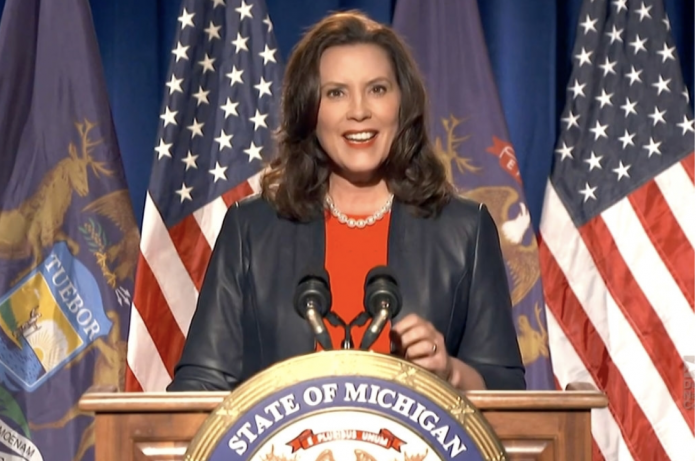The Michigan Supreme Court recently ruled that Gov. Gretchen Whitmer’s extended lockdown violated the Michigan constitution and was an unlawful delegation of legislative power to the executive branch.
The Supreme Court struck down Gov. Whitmer saying she illegally drew authority from a 1945 law that doesn’t even apply. She invoked emergency powers prohibiting people from gathering in large groups. She also shut down schools, restaurants, theaters, coffee shops, gyms, casinos, libraries, museums, and more.
Declaring a “state of emergency” is not new for this Michigan governor. She already declared a state of emergency four times last year, dealing with regional flooding and severe winter weather. This caused power outages, hazardous driving conditions, and increased emergency vehicle response time due to roadways and bridges being blocked. This is quite different from the previous governor, Gov. Snyder, who did not use his emergency powers once during his eight years in office.
Gov. Whitmer’s emergency orders this year were aimed at preventing the spread of COVID-19. In a March 10 executive order, she declared a state of emergency across the entire state, citing Public Act 302 of 1945, called the “Emergency Powers of Governor.” This was enacted near the end of World War II and empowers the governor to control traffic, establish curfews, prohibit the use of buildings and public places, and control the sale of alcohol. These powers are limited to times of great public crisis, rioting, disaster, or similar public emergency within the state.
This has been an ongoing battle over the last few months between Democrats and Republicans who control the Legislature. Republicans argue that this has restricted education, the economy, and health care. 4 Justices ruled that the Governor did not have the authority to issue a state of emergency after April 30, 2020. This is protected under the Emergency Management Act, Public Act 390 of 1976.
Under the EMA, the governor may declare a “state of emergency” but the emergency may only last 28 days. This protects property, public health, and safety to lessen the natural or human-made cause within the state. After 28 days, the governor must plan to file an extension.
The justices also ruled that the 1945 law she cited does not pertain to this particular situation. It is unconstitutional because it falsely claims to delegate the executive branch the legislative power of state government – including police powers.
While some agree that the Governor didn’t have the power to issue a “state of emergency” under the 1945 law, they don’t necessarily believe it violates the state’s constitution.
The law doesn’t matter to Democrats and all of the businesses affected by this shutdown should soon look at personally suing her for personally overstepping her authority. This unlimited power the radical left has is doing nothing but creating messy situations and power trips.




